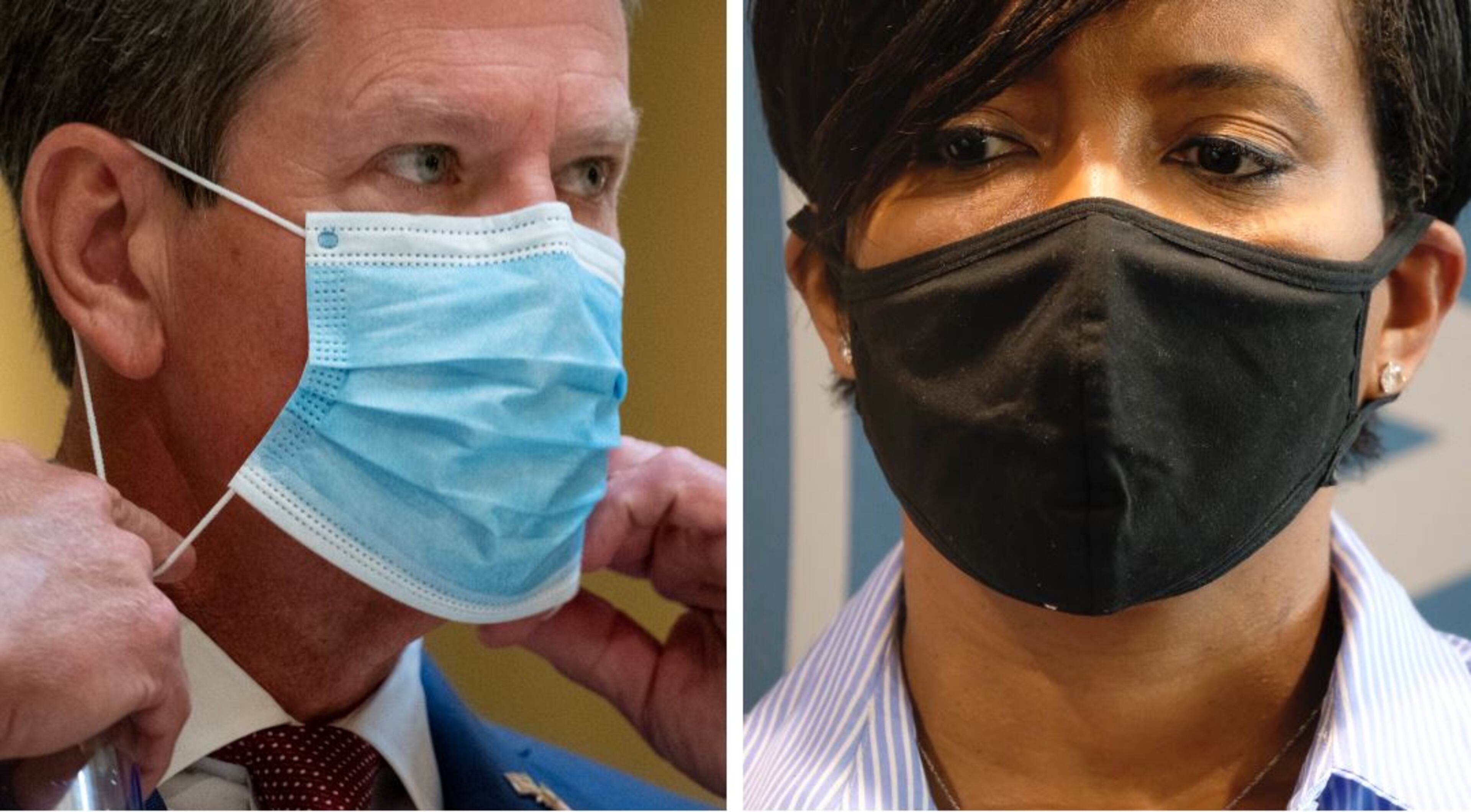In reversal, Kemp’s new order to let some cities impose mask mandates

Gov. Brian Kemp will sign an executive order that allows some local governments to require face coverings on their own property days after he abandoned a legal challenge that sought to block Atlanta’s mask mandate.
The governor’s aides said Friday that the order will clear the way for cities and counties to impose a face covering requirement if they meet “health-related metrics” and other guidelines. He continues to oppose a statewide mask mandate, insisting the best policy is to encourage and not require their use.
Under the order, which he’s set to sign Saturday, local governments could apply the mask requirements to businesses only if owners consent to it. Authorities would also have to issue at least one warning before writing a citation, Kemp administration officials say.
It’s a departure from Kemp’s long-standing approach toward mask requirements, which he’s said were unnecessary and unenforceable. His office frames it as an attempt to compromise after settlement talks reached a “stalemate.”
“Of most importance, this order will contain very strong protections for business owners and private property,” Kemp spokeswoman Candice Broce said.
“Specifically for businesses, the owner will still be able to decide whether to have a face covering requirement or not,” she said. “If the owner decides to have a face covering requirement, the owner can decide who enforces it.”
Democrats accused Kemp of trying to shift attention after he scuttled his lawsuit.
“It’s just an attempt to save face. The cities have already been doing this, and now he’s going behind them after the fact to try to set parameters,” said state Sen. Jen Jordan, D-Sandy Springs. “The fact that he’s tried to stop local mask mandates is astounding.”
A legal feud abruptly ends
The governor signed an order in July that explicitly bans cities and counties from enforcing mask mandates, and he accused Atlanta and more than a dozen other local governments with face-covering ordinances of defying his order.
And he went to court to block Atlanta from requiring masks and pursuing other coronavirus restrictions, namely “phase one” guidelines that encourage restaurants to close dining rooms and urge residents to leave home only for essential trips.

On Thursday, he abruptly dropped the lawsuit and blamed Atlanta Mayor Keisha Lance Bottoms for refusing to “agree to a settlement that safeguards the rights of private property owners.”
She called those remarks “woefully inaccurate” but said she’s grateful he abandoned the court case so the city and state can focus on fighting a pandemic that’s sickened at least 230,000 Georgians and killed 4,500.
President Donald Trump’s coronavirus task force has encouraged Kemp to take stricter measures to contain the disease, warning in a report obtained by The Atlanta Journal-Constitution that Georgia continues to see “widespread and expanding community viral spread.”
The report “strongly recommends” that Kemp adopt a statewide mandate, as well as shutter nightclubs, bars and gyms in the highest-risk counties.
About 15 cities have citywide mask polices in place and roughly 100 others require masks on their government property, said Larry Hanson, the executive director of the Georgia Municipal Association.
A recent AJC review found the mandates were scarcely enforced. The newspaper contacted 15 police departments and law enforcement agencies in the cities, suburbs and small towns that enacted the restrictions. Not a single citation was reported.

